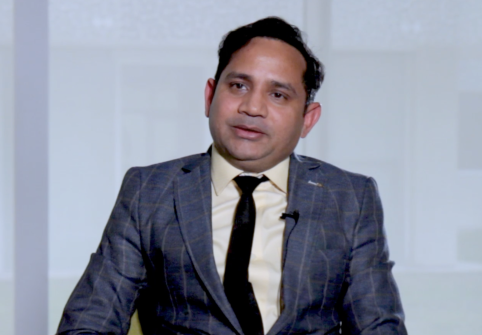Press Releases Are We Prepared To Get Through The Lockdown?
*By Dr. Mohammad Farhan
The coronavirus (COVID-19) pandemic is still spreading, with the number of cases now exceeding four million and the death rate having passed 280,000.
To contain the spread of the virus, countries across the globe are further enhancing their guidelines and measures. Schools, universities, malls, gyms, parks, and beaches are all closed, leaving people confined mainly to their homes.
While these tough actions are necessary to contain the spread of the virus, it is natural that they will have an effect on people, and a continued lockdown and other restrictions may lead to an increase in people feeling despair and tension and can also have a socio-psychological impact on societies.
The human brain can handle despair, worry and tension to an extent but when it is unable to cope, it leads to behavioral changes which initially may start with common psychological issues like bouts of frustration, anxiety, and insomnia (lack of sleep).
For some individuals, this may develop further into depression, obsessive-compulsive disorders (OCD), and suicidal instincts. It is more worrying for people who are already affected by another pathological form of these problems.
The COVID-19 lockdown and stern measures can hit people affected with psychological disorders as these situations have a high probability of further deteriorating their mental conditions.
It is important for all of us to understand how to effectively cope and manage these psychological spikes in our moods. It is even more essential for people who are vulnerable to mental health problems, especially in knowing who to ask for support in an emergency situation. Having, or knowing, someone they can talk to if needed can have a buffering effect on negative emotions and may dampen many of these responses.
The world is busy handling a global pandemic and during this time it will be hard to estimate the extent to which psychological disorders have risen. People affected by COVID-19, their families, health professionals, security professionals, and service providers are without a doubt living in a state of stress.
In some countries, an extended lockdown is causing shifts in economic prospects and employability.
Countries are trying their best to minimize the social and economic impacts of the lockdown on people by mitigating these impacts and finding alternative solutions.
Many countries have also made electricity and water free, while making arrangements to provide daily food or daily wages. Other online education platforms have made their courses freely available.
There is also an opportunity for telecom and media platforms to provide free access to people with TV channels or media sources in the same way they do to celebrate nations’ sporting successes, hence encouraging people’s mental and psychological well-being.
In such an unprecedented time of uncertainty, we should understand that we do not have control over many of these things, but there is still a lot we can do at home to cheer our family and keep the spirits of our society high.
We should use this as an opportunity to stimulate our minds by keeping ourselves busy with activities like reading, music, dance, meditation, and cooking. Writing positive stories, learning new skills like programming, or doing online courses and sharing positive moments with your friends or a wider circle may have a positive impact on society. We should also restrict our media access as it relates to the news on the coronavirus to prevent it from becoming overwhelming.
*Dr. Mohammad Farhan is an Assistant Professor at the College of Health and Life Sciences, part of Hamad Bin Khalifa University.
This article is submitted on behalf of the author by the HBKU Communications Directorate. The views expressed are the author’s own and do not necessarily reflect the University’s official stance.


